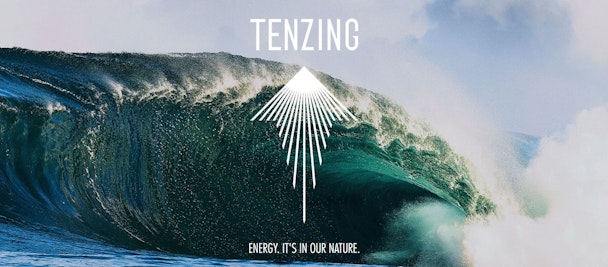Ex-Red Bull marketer plans to ride sugar tax with plant-based energy drink brand
The former marketing chief for Red Bull has launched his own 'natural energy drink' Tenzing with an ad campaign that’s been timed to roll out alongside what he dubs the “awesome” sugar tax shining a light on alternative brands.

Tenzing founder hails sugar tax
Huib Van Bockel first led marketing at Red Bull in Holland before taking up the UK and European role between 2011 and 2015 where he helped develop the drink’s company’s events like the Red Bull Air Race and the Red Bull Soapbox Race.
Advertisement
In the three years since, he cooked up a brand inspired by Sherpa Tenzing Norgay – one of the first people to reach the top of Mount Everest. From this came a new brand and, arguably a new category, the healthy energy drink.
The brew contains six natural ingredients, green coffee, guarana, green tea, Himalayan rock minerals, lemon juice and beet sugar and clocks in at 55 calories a can.
But developing the product was an eye-opening experience for Van Bockel. The formulation at the flavour house showed how set in their ways category leaders were when it came to sugar. The former Red Bull marketer aimed to come in at half the sugar levels of its would-be rivals.
"The testers asked, 'what do you want to replace it with?' and I said 'nothing'. None of the big brands had ever asked them to do this before,” he claimed.
Advertisement
Good time for a sugar tax
Van Bockel is trying to break into a busy sector, dominated by the likes of Red Bull as well as Lucozade Energy (and Lucozade Sports), Monster, Relentless, RockStar and even Carabao with its divisive sponsorship of the EFL Cup.
Many of these brands were hit by the UK sugar tax, but none more publicly than Lucozade and Ribena producer Suntory, Irn Bru maker Barr and Coca-Cola. These brands may hold a dominant market position but in Van Bockel’s opinion, that may not always be the case.
"These companies are all stuck with a product they created over 80 years ago. It is really hard for them to change and take out sugar," Van Bockel explained. "We did this before the sugar tax, we were extremely lucky it was announced, as a startup you have to have luck."
Suggested newsletters for you
But it will take more than luck to ensure the brand’s success. Van Bockel admitted that energy drinks in particular are "synonymous with bad health" but he asserted it doesn't have to be that way. He pointed to the likes of Halo Top, a low fat ice cream in America which contains roughly 300 calories per pint. He said it has "dethroned" the likes of Ben and Jerry's (which can clock in at 1,000 calories per pint) and Haagen Daas, an indication that consumers are eager to try healthier alternatives from unknown brands.

Building the brand
Van Bockel has a much smaller marketing budget to play with than he would have been used to at Red Bull. While heavily involved in that company's growth into a formidable media house, he asserts that Tenzing will not be following in Red Bull's footsteps on the content front.
"They have brilliant teams and a lot of budget, there is no way I can compete so I am not going to try." Instead he will focus on the product, and its unique properties.
Out-of-home ads are currently running in the London Underground, courtesy of Exterion, and will look to introduce the brand to the public and inform them there is another option in the energy drink space.
YouTube, Facebook and Instagram will all be used to target fitness buffs while a nine-week partnership with magazine Time Out, spanning content and editorial, aims to introduce the brand story to readers.
A sampling campaign will be limited largely to the London area where the startup is based. It is primarily distributed at Wholefoods, Selfridges, Planet Organic, As Nature Intends and several high end gyms as well as a B2C website. There is also an anomalous cluster of consumers in Nepal, near the Everest routes where the brand first took shape.
Content created with:

Red Bull
Red Bull is an energy drink sold by Austrian company Red Bull GmbH, created in 1987. Red Bull has the highest market share of any energy drink in the world, with...
Find out more
